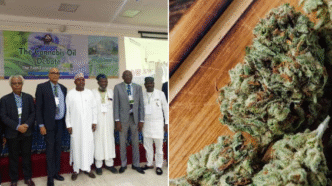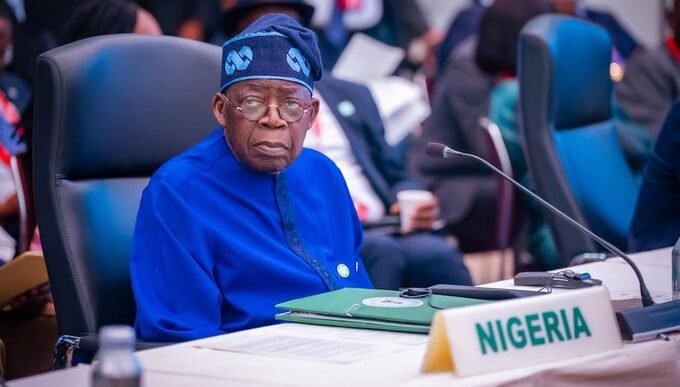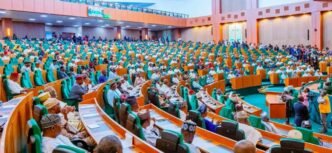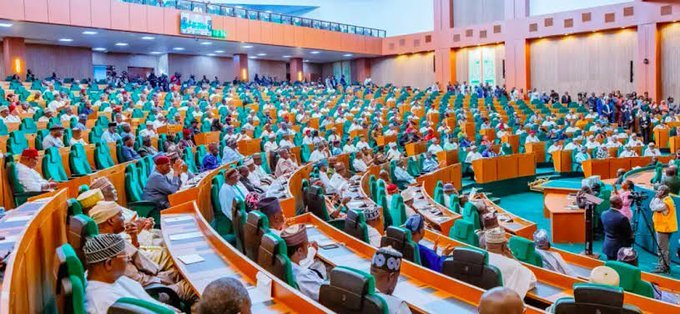A cross-section of experts and stakeholders drawn from Nigeria’s health, policy, and regulatory institutions have opened a national conversation on the potential legalisation of cannabis oil for medical use. The dialogue, which took place on Wednesday in Abuja, was part of an ongoing study by the Nigerian Academy of Science (NAS) to evaluate the scientific, social, and legal implications of medicinal cannabis oil within Nigeria’s existing policy framework.
The high-level forum, themed “The Cannabis Oil Debate: The Path Forward for Nigeria,” attracted participants from key government agencies, academia, civil society, and the medical community. It marked one of the most comprehensive public engagements on the issue to date, as Nigeria grapples with global trends in the controlled legalisation of cannabis for therapeutic purposes.
Background: Nigeria’s Legal and Policy Position on Cannabis
Nigeria’s National Drug Law Enforcement Agency (NDLEA) classifies cannabis—popularly known as Indian hemp—as an illegal substance under the NDLEA Act Cap N30, Laws of the Federation of Nigeria (2004). Its cultivation, possession, sale, or use is a criminal offence, punishable by imprisonment.
However, international perspectives on cannabis are evolving. Over 50 countries, including Canada, Germany, Israel, South Africa, and Thailand, have either legalised or decriminalised cannabis for medicinal or research purposes. This shift is largely driven by emerging scientific evidence suggesting that compounds such as cannabidiol (CBD) may offer therapeutic benefits for certain medical conditions.
For Nigeria, the debate now centers on whether cannabis oil—particularly those derived from low-THC, high-CBD strains—can be regulated for legitimate medical applications without breaching the country’s drug control laws or encouraging recreational abuse.
The NAS-Led Consensus Study
The Nigerian Academy of Science, in collaboration with other national institutions, initiated the consensus study to evaluate available scientific data on cannabis oil’s medicinal value and its compatibility with Nigeria’s legal and cultural frameworks.
The project’s objectives include:
- Assessing global scientific evidence on the safety, efficacy, and dosage parameters of cannabis oil in treating medical conditions.
- Reviewing Nigeria’s legal and regulatory landscape, including how existing drug laws can accommodate medical exceptions.
- Identifying potential risks and socio-economic implications, including public health, law enforcement, and youth safety.
- Recommending evidence-based policy options for the Nigerian government to consider before any legislative amendments are made.
Speaking at the event, NAS President Professor Ekanem Ikpi Braide emphasized that the purpose of the study is not to advocate for or against legalization, but to “anchor the national discussion on science and facts, not emotions or economic speculation.”
Expert Opinions: Balancing Medicine and Morality
During the session, health professionals and policy experts offered divergent views. Some called for a cautious, evidence-driven approach that prioritizes public safety, while others highlighted the economic and medical benefits of regulated medical cannabis.
Dr. Olabisi Adebayo, a pharmacologist at the University of Lagos, noted that multiple studies indicate CBD oil’s potential in managing epilepsy, chronic pain, and anxiety disorders. However, she warned that Nigeria’s lack of adequate pharmacovigilance systems could make unregulated access dangerous.
“Cannabis oil has legitimate medical use, but its adoption must come with stringent testing, doctor prescriptions, and control over production and distribution,” Dr. Adebayo said.
Similarly, Dr. Peter Oche, a public health researcher at the University of Benin, urged the government to invest in local research before making any legislative changes. “We should not import the experiences of other countries wholesale,” he said. “Nigeria must develop its own data on dosage, side effects, and socio-behavioral impact.”
Regulators Caution Against Premature Legalisation
Representatives of Nigeria’s drug control agencies expressed caution, warning that any premature legalisation without robust safeguards could undermine anti-drug efforts.
Mr. Femi Babafemi, spokesperson of the NDLEA, reiterated the agency’s commitment to upholding the current legal stance, while acknowledging that the global shift toward medicinal use requires thoughtful policy review.
“While the NDLEA is open to scientific dialogue, our priority remains preventing abuse and protecting public health,” Babafemi said. “Cannabis remains a controlled substance under Nigerian law, and any move toward legalisation must first demonstrate that benefits outweigh the risks.”
Officials from the National Agency for Food and Drug Administration and Control (NAFDAC) also echoed this position. Dr. Monica Eimunjeze, the agency’s Director of Drug Evaluation and Research, stated that “without clear regulatory systems, product quality and patient safety cannot be guaranteed.”
Civil Society and Economic Perspectives
Civil society representatives and agricultural experts offered additional perspectives, pointing to the potential for job creation, rural development, and revenue generation if cannabis cultivation is regulated under medical licensing.
Mr. Tony Duru, a policy analyst with the Centre for Sustainable Agriculture, noted that countries such as Lesotho and South Africa have already tapped into the multi-billion-dollar global cannabis industry by issuing controlled cultivation licenses.
“Rather than criminalize an entire sector, Nigeria can adopt a model that prioritizes research, licensing, and export for medical-grade cannabis oil,” Duru said. “This could empower farmers, generate revenue, and reduce dependence on oil exports.”
However, other stakeholders cautioned that Nigeria’s weak regulatory and enforcement mechanisms could make such ventures susceptible to diversion into illicit channels.
Mrs. Aisha Lawal, of the Coalition Against Substance Abuse (CASA), warned that “the line between medical and recreational use is easily blurred in environments with limited oversight.” She urged authorities to focus on strengthening drug education and rehabilitation before expanding access to cannabis products.
International Models and Lessons
Several presenters at the workshop referenced global best practices to illustrate how Nigeria could approach the issue. In Canada, for instance, cannabis oil is prescribed strictly by medical professionals and dispensed under federal supervision. In Germany, patients can access medical cannabis under insurance coverage, but only through pharmacies.
African countries such as Rwanda and Zimbabwe have also adopted restrictive frameworks allowing cultivation and export of medical-grade cannabis while keeping domestic recreational use illegal. These examples, stakeholders said, offer useful models for Nigeria to study before making policy commitments.
Social and Cultural Sensitivities
Beyond science and economics, participants noted that Nigeria’s cultural and religious values play a significant role in shaping attitudes toward cannabis. Many religious and traditional leaders remain opposed to any form of legalisation, citing moral and social implications.
Dr. Josephine Eze, a sociologist from the University of Nigeria, Nsukka, emphasized that “policy must reflect not just evidence, but the social realities of the Nigerian context.” She added that stigma, misinformation, and public fear could hinder acceptance even if medical cannabis is legalised.
The Road Ahead
At the close of the event, the Nigerian Academy of Science announced that findings from the ongoing study will be compiled into a national consensus report scheduled for release in early 2026. The report will include recommendations for policymakers, including possible legislative amendments, licensing models, and risk mitigation strategies.
Participants agreed that while the potential medical and economic benefits of cannabis oil are worth exploring, Nigeria must prioritize scientific integrity, regulatory readiness, and social responsibility before proceeding with any form of legalisation.
Conclusion
The debate over cannabis oil in Nigeria has moved beyond moral controversy into the realm of scientific inquiry and policy planning. Wednesday’s stakeholder dialogue in Abuja signals that the conversation is maturing — grounded in data, public health considerations, and national interest.
Whether Nigeria eventually legalises medicinal cannabis oil or maintains its prohibitionist stance, experts agree that the path forward must be guided by research, regulation, and respect for societal values.














